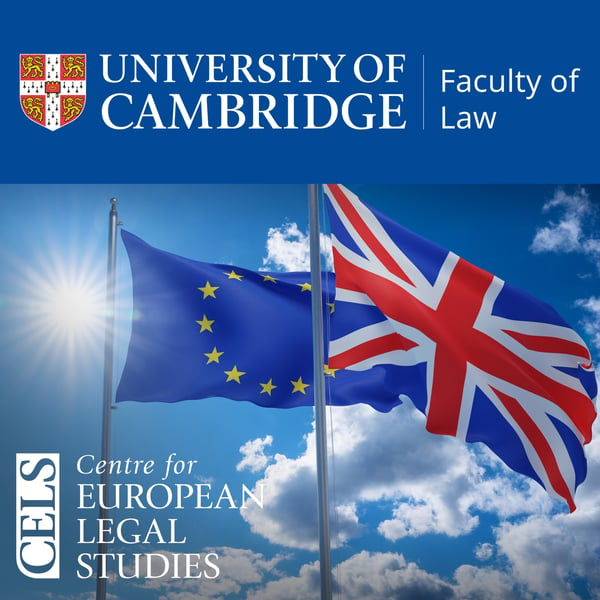'Session 4: Competition Law' - Tim Ward: CELS Brexit Symposium
Cambridge Centre for European Legal Studies (CELS) Podcast
Faculty of Law, University of Cambridge
0 • 0 Ratings
🗓️ 14 March 2019
⏱️ 19 minutes
🧾️ Download transcript
Summary
Transcript
Click on a timestamp to play from that location
| 0:00.0 | Thank you very much for that kind introduction and thank you for inviting me to be here today. |
| 0:08.4 | I am a practitioner. I'm not an academic of any kind, amateur or professional. What I'm going to do is talk about the impact of Brexit on competition law in the UK from a practitioner's perspective. There is a hard |
| 0:23.5 | copy handout floating around as PowerPoint is a little bit beyond my technical prowess. And it's |
| 0:29.7 | useful to have it if you can find it. I'm going to start with a short history lesson about competition |
| 0:35.3 | law in the UK. The old law, as we like to think of it, was set out in |
| 0:40.3 | the Restrictive Trade Practices Act, 1976, and the Fair Trading Act, 1973. And to put it bluntly, |
| 0:48.7 | the law was hopeless. Why was it hopeless? Well, Professor Wish explains it very well in a little quote on the handout from his |
| 0:56.7 | 2001 edition of his book on Competition Law. What he said was it was ineffective in punishing cartels, |
| 1:04.8 | in particular because there were very weak sanctions. The power of the Director General of Fair |
| 1:09.7 | trading was weak. The law on restrictive |
| 1:12.3 | trade practices was enormously complicated and often caught innocuous agreements while failing |
| 1:18.3 | to apply to seriously anti-competitive ones. There was little effective control over unilateral |
| 1:23.5 | behaviour of firms with significant market power. It was very different from EC law, with which |
| 1:29.1 | firms also had to comply. So for a long time, politicians talked about doing something about this, |
| 1:35.6 | because ultimately, competition law doesn't cost very much money, but can drive real benefits for |
| 1:41.5 | consumers and business. And there's a lovely quote there, which I must admit |
| 1:45.2 | I've stolen from Richard Wish's book, which is itself a quote from The Economist magazine, |
| 1:50.3 | reporting on a meeting of the House of Commons Select Committee in 1995, which said the members |
| 1:55.3 | of the committee found themselves listening to one long stream of rage. Those testifying before |
| 2:00.4 | the committee have unleashed a |
| 2:01.6 | barrage of criticism at the country's competition laws and regulatory bodies. Wow, well, we |
| 2:06.7 | don't often generate quite that much heat over competition law. But the result of this was the then |
... |
Please login to see the full transcript.
Disclaimer: The podcast and artwork embedded on this page are from Faculty of Law, University of Cambridge, and are the property of its owner and not affiliated with or endorsed by Tapesearch.
Generated transcripts are the property of Faculty of Law, University of Cambridge and are distributed freely under the Fair Use doctrine. Transcripts generated by Tapesearch are not guaranteed to be accurate.
Copyright © Tapesearch 2025.

